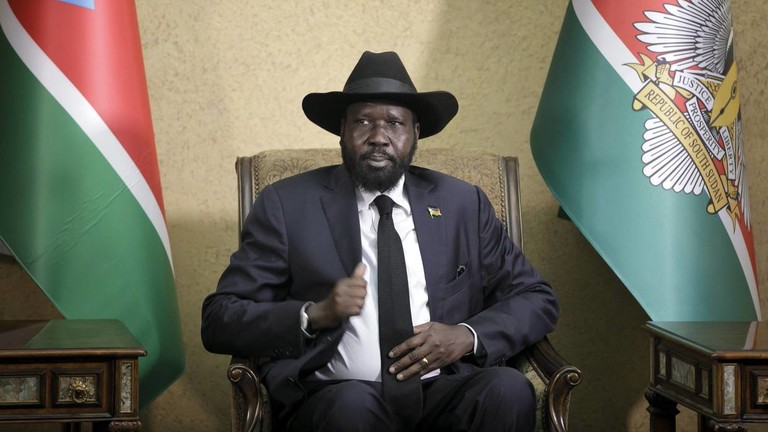Africa
South Sudanese Leader Fires Top Officials After Shooting Incident

South Sudan’s President has dismissed several high-ranking officials following a shooting incident, signaling a crackdown on misconduct and ensuring accountability within the government.
South Sudanese President Salva Kiir has dismissed the heads of the military and police, along with the governor of the central bank. This decision, which was made public late Monday, comes in response to escalating tensions within the security apparatus of the East African nation.
In a decree broadcast on the state-owned television network SSBC, Kiir appointed Paul Nang Majok as the new commander of South Sudan’s defense forces, succeeding General Santino Deng Wol, who has been reassigned to the Defense Ministry as undersecretary. Additionally, Abraham Peter Manyuat has been named as the new inspector-general of police, following the removal of Atem Marol Biar.
In a separate decree, the president also relieved James Alic Garang from his role as governor of the central bank, appointing Johnny Ohisa Damian to take over the position. Damian’s return to the financial institution is notable, as he previously served as its head from August 2022 until his dismissal in October of the previous year, when Garang, an adviser to the International Monetary Fund (IMF), took over.
READ ALSO: South Sudanese Aspire for Lasting Peace Amid Election Delays
The presidential decrees did not outline the reasons for the dismissals; however, Reuters reported that security sources indicated the restructuring may have been prompted by dissatisfaction within the military, particularly regarding unpaid salaries that have persisted for nearly a year.
The economy of the East African nation has been in a state of decline since the conclusion of a five-year civil war that commenced in 2013, stemming from a conflict between President Kiir and his former vice president, Riek Machar. The United Nations has reported that this conflict forced approximately 2.32 million individuals to seek refuge in neighboring countries, significantly diminishing South Sudan’s oil production, which was once the cornerstone of its economy. In August 2018, a power-sharing agreement was reached between the warring factions, effectively ending the hostilities. Nevertheless, the landlocked nation continues to experience instability.
The transitional government, which recently postponed long-overdue general elections that were set for December, has also been facing challenges in managing a cash crisis, exacerbated by the rupture of an oil pipeline in neighboring Sudan that generates over 90% of its revenue, as reported by Bloomberg.
The recent changes occurred less than a month after intense gunfire erupted in the capital, Juba, involving the army and the security personnel of former national intelligence agency chief Akol Koor Kuc. General Koor Kuc, who had been at the helm of the intelligence service since South Sudan’s independence from Sudan in 2011, was dismissed by President Kiir in early October and reportedly placed under house arrest.
The two officials appointed to the new security roles are believed to be from Kiir’s home state of Warrap, located in the Bahr el Ghazal region.
